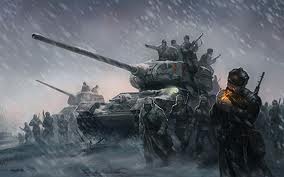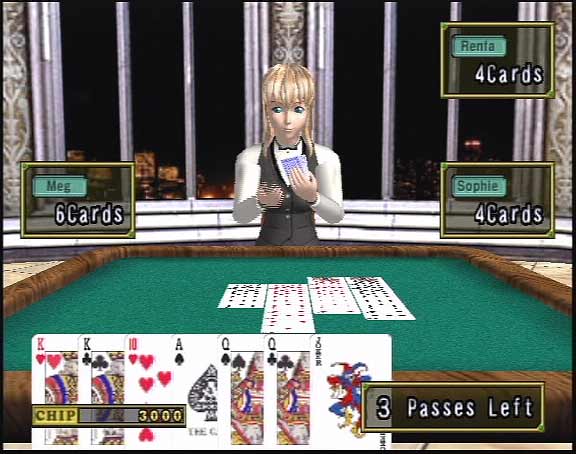Aythreuk
Alex joined
Name is Alex. Occupation you might ask? Professional Nobody.
RNG for those who don't know means random number generation, aka luck and I'm going to explain to you why for the most part it SUCKS.
The more RNG plays a part in a videogame, the less the player is able to make intelligent and calculated decisions. I think this shows clearly in a comparison between Company of Heroes and Starcraft.
I wasn't the one to pick this comparison either, I credit this to a fan of Company of Heroes who had this to say about the game's randomness
A_CoH_player wrote: This isn't StarCraft, units don't just stand in a line and Damage Per
Second each other to death. This game simulates battle situations in
a more realistic way than your traditional RTS, hence the random
occurencies which could happen in real life
Multiple things about this comment annoyed me, one of which being the fact that Company of Heroes isn't in the "simulation" genre on steam. It's not really a simulation, it's just inspired by World War 2.
The worst random things can happen to you in Company of Heroes, a random mortar lands on your sniper, killing him instantly. A grenade blows a hole in the ice underneath your German Tiger Tank (a
very expensive tank) and it sinks. In Starcraft everything is smooth and consistent allowing players to make calculated and precise plays.
You can also see Riot games patch their game League of Legends over the years to include less and less RNG, because people don't like it!
Competitive players don't like it!
I'll explain what I mean in this case. Years ago League of Legends had a stat known has dodge.
They tried to balance it, but in the end the only solution was to remove it entirely. Hey! It was a dumb stat anyway.
Critical hits are something else that is obviously reliant on RNG. While they didn't remove that stat they did make heavy changes to the way it works, making it so the player has guaranteed crits. If you have 10% chance to crit, you will crit 1 in 10 hits. No lucky 3 crits in a row!
No unlucky 1 crit in 30 hits!
Sounds amazing doesn't it?

But I don't think RNG in videogames is all bad. Usually this isn't my kind of thing, but personally I think casino games can be fun. My brother always tells me how fun the casino in real life is, but real life is overrated of course so let's talk about the videogames.
You make some decisions in most casino games - yes - but at the end of the day you're just rolling a die basically. Maybe you lose some, maybe you win some. Maybe you bust and your friend is sitting on a million
dollars! But there is a likeness to it, even though there is virtually zero skill. I think this is because these casino games don't operate under a false pretense. They don't pretend to be MLG material, 100% skills.
Company of Heroes tries to be an RTS, but it's RNG mechanics undermine the logical play style that an RTS needs to have.

RNG can lead to exciting, unexpected outcomes, but there are some places it just doesn't belong.
You can also call this the "Devourer Observation", if you will.
Have you ever played a character in any PvP game that relied heavily on one skillshot?
If so, then you are familiar with this.
The way it works is very simple, and is as follows:
If Blitzcrank misses, he's a noob.
If you get hooked by Blitzcrank, you're a noob.
If you have played games like these you know how true this is, and if you're a reasonable person you will immediately take note of the logical inconsistency here.
This is how people online think whether you're playing Heroes of Newerth, League of Legends or Defense of the Ancients. (Or really, any other game for that matter)
It's simple - yes - but it's really funny how much of a raw deal the people on either end of this get.
Ultimately I would say this reflects how negative some communities are (or maybe just humans in general, but I would like to think not), after all, the logic could easily be rearranged to the following.
Blitzcrank hit his hook, good job!
A player got hooked by Blitzcrank, bad luck!
Positive and logical.
Goodluck in your next match ;)
The videogames industry is a business - quite obvious, yes - but at times forgettable.
Understandably forgettable when at times you're having as much fun as you are. But sometimes new business tactics arise, business tactics that should be questioned on a wider scale than they are.
And I'm not just talking about marketing physcology, or the science of persuasion and advertising. I'm talking about things a little more blatant than that.
Downloadable content, or DLC, is definitely a modern way of squeezing an extra few dollars out of you for a game you already bought.
“But it's new content,” I hear you say.
There have been multiple instances of a phenomenon called Day 1 DLC, in which
DLC is released on the first day of a games release, for a fee of course. Basically the developer cut off a piece of your game and sold it to you seperately. Cute though, you thought you had purchased the whole game.
“But that's the worst example,” I hear you say.
You want to know what's worse than Day 1 DLC?
An excessive amount of DLC for a single game. And I have my reasons for this statement.
Allow me to coin you this question.
What is a large selection of small purchases for a game called?
An item mall, oh woops I mean, “DLC”.
What kind of a game is buy to play AND has an item mall?
A game designed to squeeze every dollar out of you.
It should make you really appreciate companies like Runic Games and Re-logic having released completely free content updates for their games Torchlight 2 and Terraria. (Two games I highly
recommend, by the way)
But there seems to be a new trend emerging with the rise of crowdfunding and early access games. It's a payment model that makes you pay more, for earlier access, and not just a little bit more. Developers are charging big money to have you... test their game for bugs?
A fine and recent example (recent as of my posting this) of this nightmarishly reversed business model is Uber Entertainments Planetary Annihilation.
Purchasing the game in the alpha time frame cost $90, in the beta time frame it's $60 and then the finished product costing only around $40.
As the saying goes, “You get what you pay for,” what a laugh.
A similar but less extensive business model was also used by recent games Akaneiro: Demon Hunters and Solforge, in which early access to the game was a flat price of around $10 to $20, but the game on release was actually... free.
And I think this is intentionally misleading because you might have your own judgements about the quality of a free to play game, and you shoudn't have to dig for that information.
All these games are very recent, we're talking 2013. If this trend also becomes normal then who knows what the future of games will be like. At the least we should be prepared for any kind of sick sales gimmick, hoping we can at least find decent value in smaller, more appreciative games
companies. Because those backwards prices for early access indicates to me that, as a player, I should appreciate the developer for letting me test their game, instead of the developer being appreciative that they have customers that are also beta testers.
TL;DR
Give your money to companies that appreicate you and care about their playerbase. If you have money to spare still give your purchases meaningful thought because bad comsumer habits fuel even worse business ethics.
Real and fake “toxic” behaviour in F2P video games
So many millions of people all around the world play together online in a multitude of different games. Working together in teams and/or against eachother.
So many different people with different attitudes and backgrounds clashing in a dehumanised, often competitive environment.
What is the result of this?
Rage of course. But also good friendships and most important of all, fun.
I might seem insensitive here but quite honestly, these instances of raging and swearing are natural and really not “toxic” behaviour at all.
It's human nature to not get along with every single other person there is.
Don't get me wrong, there are probably exceptions, but very few I'd say, considering you
can mute/block someone with a single click of your mouse.
And so, I deem this behaviour the “fake toxic behaviour”.
That part wasn't specific to free to play games, this next part is though.
One day, a certain unnamed free to play company was running deep into unscheduled server downtime (again) and I happened across it's forums. I read one persons post complaining about this unscheduled downtime and also the amount of bugs that had arisen from the recent patch. There seemed to be a trend in the comments in response.
“The game is free to play, the company doesn't owe you anything. Stop complaining”
I couldn't believe how many people seemed to think this. Running a big game is probably
quite difficult, and a little extra downtime perhaps isn't too bad, but it's the attitude that needs to change.
This particular game brings in enormous revenue for the company, and they don't owe
anybody anything?
That my friends, if true, is the biggest scam in gaming history to date.
For the amount of money pouring into that company, I'm pretty sure they owe their players a game and a service.
So what's the harm you might ask?
It's just some comments, what effect could it possibly have?
If everybody thinks that, then there won't be any pressure on the company from it's customers to provide a quality service. The result of this behaviour could be anything, ranging from very poor service (server maintenance time, server stability, technical support etc...) to overpriced microtransactions that took no time for them to develop.
I'll leave you at a guess as for what game and company my example was about.
If it's free to play or not, if you payed or not. They owe you something.

